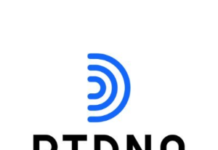
As of Tuesday, May 2, Sylvia Banderas Coffinet has been appointed as the CEO of Latino Media Network (LMN). She joins founders Stephanie Valencia and Jessica Morales Rocketto in scaling one of the largest Latina-owned multi-platform audio and media companies in the U.S.
She brings with her extensive experience in the Latino media marketplace, having launched significant content franchises and brand efforts for various media outlets. Prior to joining LMN, she held positions at Vox Media, HELLO & ¡HOLA! Media Inc., PEOPLE en Español, Glamour, and Latina Magazine. Sylvia’s appointment comes at a time when LMN has recently completed its acquisition of 17 radio stations in ten cities from Univision, marking the largest radio deal in the past three years.
Radio Ink had the opportunity to sit down with Sylvia and Stephanie Valencia to discuss her new role and the future for LMN.
Sylvia Banderas Coffinet: So I have been in the media industry now for over 17 years. I’ve been so fortunate where I’ve had the experience in both the general market as well as the Latino market. I can say that that’s always been my heart’s calling and my passion as a Latina. My first job working for a Latino media company was Latina Media Ventures, and I remember feeling so inspired. I knew I was always going to get that call back into the Latino market.
I also have plenty of experience across the board via digital, social, video, audio, print, and experiential. As I mentioned my core focus has always been consumer equity, particularly around the Latino community and the heart of LMN’s story is the Latino community. Our goal here is really to center our community and tell accurate, compelling, and culturally relevant content and stories. So it was a perfect match for me.
Radio Ink: You’ve worked at Vox Media. You’ve done a lot of work in print. What drew you to radio?
Sylvia Banderas Coffinet: I think radio is so powerful, especially when it comes to reaching the Latino consumer. Radio is king. The last statistic I read that blew my mind was something like 97% of all Latinos listen to or are reached by radio. I am somebody that’s always been very business savvy and business-driven, and the combination just coming together made perfect sense, especially at a time like right now. After the 2020 Census, there is no doubt that the economic engine of America today is Latino. And so combined with that and just the reality of how underrepresented we are in all sorts of ways in the media landscape, it made sense.
Even when it comes to just Spanish, people forget that the Spanish language, we are, the largest Spanish-speaking country in the world. There are essentially more Spanish speakers here than in Spain. The Latino community is essential for any brand that’s looking to become future-proof. And yet, it’s hard for us to get content.
I deeply believe in the mission that Stephanie and Jess have set out. Or and I know that our community is the present and the future of this country. And so together we’re out to really change the landscape and do something that’s for and by us. And it’s about time. We’ve always, you know. been in situations where we didn’t own the mic or own the pen, and now we do. And therefore we get to tell our stories and write our stories. And it’s a really exciting thing for us.
Radio Ink: What was the process like that led to Sylvia’s selection?
Stephanie Valencia: We had a set of names that we were considering for candidates, but we did an open call. And the reason we did an open call was we knew we had a compelling message and a compelling platform that we were building and we didn’t wanna limit ourselves to maybe the people who had always been in the radio industry or the people who had kind of always done these jobs in the past. We really wanted to kind of cast a wider net because what we’re building at LMN is not just a radio company, it’s a multi-platform audio and media company.
We needed somebody who understands the power of terrestrial radio, who also understands where that can bleed into digital audio streaming, podcasting, and the whole panoply of opportunities now with YouTube and TikTok and other digital mediums where you can reach other audiences and other subgroups of Latinos and Spanish-dominant Hispanics in this country. We wanted somebody who had a more diverse media background and could bring all those threads together.
When we saw Sylvia’s resume and talked to her for the first time, it was actually the first interview I did. We interviewed probably over a dozen candidates for CEO. Let me also just say our headhunter who was working with us on this search who came from Vice Media and had been in the media industry for a long time, said she had never worked on a search where she had this much interest in our CEO candidate role. We had, I think, almost 200 applicants for both roles together. And so it was a lot of kind of sorting and figuring out who were we going to interview.
Ultimately, it was about a dozen of each of the candidates that we had work with us on a planning and strategy exercise. Every step in the process, Sylvia just really excelled. Her clear mastery of the market and ability to navigate mainstream media and Hispanic media and blend the advertisers who are in both of those worlds, especially those who are kind of Latino curious now.
You have [Latino pop star] Bad Bunny on the cover of Time magazine. I don’t think a lot of the United States of America, other than Latinos, knew who Bad Bunny was six months ago. Now everybody knows. And if you don’t, you will know very soon. And as Senator Bob Menendez likes to say, if you’re not married to a Latino yet, you will be very soon, because of just how fast Latinos are driving population growth in this country. So all that is just to say, like, Latinos are driving the cultural experience in this country. Latinos are driving population growth. The opportunity we were building for wasn’t just the moment that we’re in today. It’s the moment of the next five years, the next 10 years, the next generation.
Sylvia Banderas Coffinet: I just want to add that part of the reason I was so impressed and so excited about this opportunity is that I felt like I was joining the 1% club. When I think about what Jess and Stephanie have done, the story, just us having this conversation right now is remarkable. The chances of a Latina CEO for a company that is owned and led by other Latinas – that shot is more than one in a million. And so for me, it’s a huge honor. But it’s also just a moment. We are putting tons of cracks in that ceiling right now. And that was one of the biggest reasons I was so excited. I was excited to come on board because of Steph and Jess and what they’ve been able to accomplish.
Radio Ink: You touched on how Latino Media Network is very passionate about digital integration, especially in YouTube and podcasting aspects. With your digital media experience, what are you looking forward to bringing into LMN in that regard?
Sylvia Banderas Coffinet: There’s a lot that we have to think about what’s next, but I think the one thing that I know for sure is that Latinos are hyper-interested in culture and culturally relevant content, and that’s what’s missing the most. The platform is sort of the message, so we can think about social digital. With Podcasts and YouTube, I think that is almost secondary to the reality of just how important it is that we actually create truly culturally relevant content that’s them and by them.
Right now my focus is to think about how we’re going to continue to build this all-star team of just committed changemakers and corporate trailblazers and think about how LMN is going to cater to the full spectrum of Latino diversity and the diversity within our diversity. What I’m most excited about is not only what we’ve done so far, but what’s still to come from a potential standpoint, whether it’s podcasts, whether it’s YouTube, or I’m particularly excited about social and digital, just because I recently come from that world and I can see how exciting that landscape is. and just how it’s truly driven by younger gen Latinos. I think that there’s so much opportunity that the most important part is that we get to do it for and by us.
Radio Ink: You’re in eight of the top ten markets after the Univision purchase and you picked up a lot of AM signals. AM is under attack right now. How big is that concern to LMN right now between the automakers and other parties privy to the removal of AM?
Stephanie Valencia: We’ve been following and tracking that legislation. It’s just stupid. I don’t know who thought that it was a great idea to take AM radio away. AM radio plays such an important role in providing a place for discourse, debate, and conversation. For sports and religion. There’s just a huge set of actors who are on AM radio that I know we’re getting engaged in how to fight back and push back on this terrible action.
AM really is a world in which there is so much information kind of being circulated. We can’t just transition to you know, online information anymore. We still need these places for live conversation and discourse and discussion, and AM radio is where that can happen. We will be engaging with the NAB and others to push back on this, especially in a world with Spanish language stations where Hispanics are driving growth of the population of this country. There should be more platforms, not fewer platforms, reaching, engaging, and providing information to this community.
If they were to take away AM radio from the Hispanic community, it would be a huge, huge, huge disservice to the community that is still using terrestrial radio as a means to engage and communicate. Not to mention all of the great sports teams who were on AM radio. We have the broadcasting rights of most of the major sports teams from MLS to MLB to the NFL to the NBA in these different markets. And it would be a huge shame for that platform to be taken away from those sports teams as well.
Sylvia Banderas Coffinet: I couldn’t underscore that more. And I also think that it’s important to just point out the trust element. Radio, especially AM radio, there’s more trust there than even in broadcast television. So when we think about that disservice, it’s also just something from a consumer standpoint, there’s a desire there. So we’re not doing this necessarily for the consumer’s sake, which is always, I think, poor business.
Radio Ink: Talking about trust – recently Twitter and NPR got into a very prominent battle over a credibility issue. LMN was attacked on credibility front when you were trying to start the network. In an era of social media and determining where credibility comes from, how do you navigate that?
Stephanie Valencia: The only way we can navigate that is by building trust with our listeners. You know, our listeners at the end of the day have the choice to stay or to walk away. And so that trust is built listener by listener, show by show, station by station. At the end of the day, our job is to ensure that we are providing relevant, culturally competent, interesting content for people to continue to listen to these stations.
Just because Univision handed stations over to us doesn’t mean they’re going to be successful. Our job is to continue to build that audience base in all of these different markets, which requires a different strategy in every market. Some places will require more local programming, other places it might be more sports programming, and other places it might be more talk radio and more kind of informational programming.
The thing we know about Latinos is that they are trying to navigate this world of information from things like not just politics, but personal finance and immigration. What is the latest news about what’s happening with this kind of visa or that kind of visa? What is the latest wait time for these kind of visas? What’s happening at the border? Then some want talk about healthcare, or makeup and beauty. So those are all things that I think people are kind of constantly searching for how to make sense of what’s happening in the world and where they are in relation to that.
Latinos are voracious consumers of information. They might listen to talk radio on the way to or from work. In between there, they might watch some YouTube content from Joe Rogan or watch an educational video, or they’re listening to a podcast on Apple or Spotify. We want to make sure we’re helping to fill that by providing information based on what we know from the research we’ve done, the topics that people are looking for. But at the end of the day, that trust is built because people can walk away.
Sylvia, you called it being part of that 1% and cracking the ceiling. What advice and guidance do you have for the next generation of Latinas or Latinos that really want to get into radio, break into this industry, or media in general?
Sylvia Banderas Coffinet: Media is definitely an industry that needs more representation, and visibility is viability. We cannot be derailed by the noise. We have to knock on those doors and keep trying. If we can’t get to the table, we build our own table. I think the most important thing is to not give up on yourself, believe that the opportunity is there, and to keep on trying.
My first job, I had to subsidize my salary because it was an assistant role that really just was hard; the pay was very low. So it doesn’t attract people that can’t necessarily rely on other income sources to help subsidize their lives. So my first job, I had to leverage my credit card and give myself a time limit of 10 months before I could make a jump and get another job in order to survive in New York. It takes risk, but what good are wings if you’re not willing to jump and fly?






